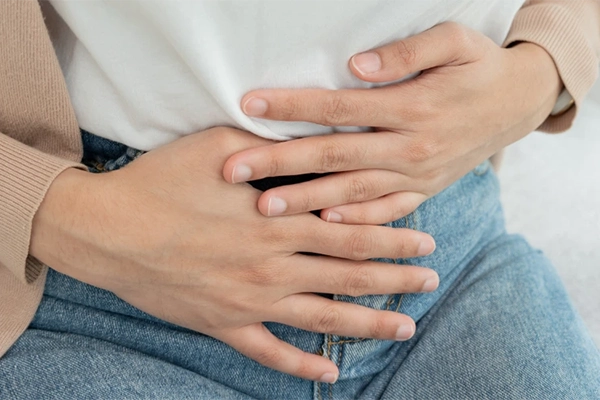Topics
Gastritis is a condition characterised by inflammation of the stomach lining, which can lead to discomfort, including stomach pain, nausea, and bloating. Effective management of gastritis involves making appropriate dietary choices to prevent irritation and promote healing. This article explores the dietary restrictions necessary for individuals with gastritis or stomach ulcers to help alleviate symptoms and support digestive health.
Foods to Avoid with Gastritis
Certain foods have the potential to aggravate the stomach lining, exacerbating inflammation and discomfort. Eliminating these foods from the diet is essential for effective symptom management.
Spicy Foods
Spicy foods, including chilli and hot peppers, can provoke irritation in the stomach lining, leading to flare-ups in individuals with gastritis and stomach ulcers. Research by the National Institutes of Health (NIH) suggests that capsaicin, a compound present in spicy foods, may stimulate excess gastric acid production, thereby worsening symptoms in those with gastric inflammation.
Citrus Fruits and Juices
Although citrus fruits such as oranges and lemons are rich in vitamin C, their high acidity levels can irritate an already inflamed stomach lining, potentially worsening discomfort.
Fried and Fatty Foods
Fried foods, fatty cuts of meat, and foods high in trans fats can contribute to prolonged digestion, leading to an increase in gastric acid production and further irritation of the stomach lining.
Impact of Dairy Products on Gastritis
The consumption of dairy products can vary in its effects on individuals with gastritis. While some may tolerate dairy without issue, others may experience discomfort due to fat content or lactose sensitivity.
High-Fat Dairy Products
Full-fat milk, cheese, and cream may stimulate excessive gastric acid secretion, intensifying gastritis symptoms.
Lactose Intolerance
Individuals with gastritis who also experience lactose intolerance may suffer from bloating, gas, and further digestive discomfort when consuming dairy.
Caffeine and Alcohol as Gastric Irritants
Both caffeine and alcohol are known to irritate the stomach lining, making them unsuitable for those managing gastritis.
Caffeine
Caffeine, found in coffee, tea, and energy drinks, acts as a stimulant that increases gastric acid secretion, which can aggravate symptoms of gastritis and stomach ulcers.
Alcohol
Alcohol consumption can erode the protective mucous lining of the stomach, leading to inflammation and heightened discomfort.
Soft Drinks and Sugary Beverages
Sugary beverages, including carbonated soft drinks, are often high in acids and sugars, which can contribute to increased gastric acid production and digestive discomfort. Reducing sugar intake is beneficial not only for managing gastritis but also for overall gut health.
The Impact of Overeating on Gastritis
Consuming large meals can place excessive strain on the stomach, resulting in increased acid production and further irritation of the stomach lining.
Heavy Meals
Large meals, particularly those eaten late at night, can lead to indigestion and exacerbate gastritis symptoms. Opting for smaller, more frequent meals can ease digestion and reduce acid buildup.
Skipping Meals
While overeating can be problematic, skipping meals can also worsen gastritis. When the stomach remains empty for extended periods, gastric acid may begin to irritate the stomach lining, causing pain and discomfort. Maintaining a regular eating schedule can help regulate acid levels and minimise irritation.
Stress and Dietary Habits
Stress is a significant factor in digestive health. High stress levels can contribute to poor dietary choices, overeating, or irregular meal patterns, all of which can worsen gastritis symptoms.
Effective Management of Gastritis
Managing gastritis effectively requires more than avoiding specific foods. A comprehensive approach, including medication, lifestyle modifications, and a well-balanced diet, is essential. At Gleneagles Hospitals, specialists provide tailored treatment plans to help manage symptoms and improve overall well-being.
Frequently Asked Questions
1. Should spicy foods be avoided with gastritis?
Yes, spicy foods should be avoided as they can irritate the stomach lining and worsen symptoms.
2. How does caffeine impact gastritis?
Caffeine stimulates acid production in the stomach, which can aggravate gastritis symptoms. Limiting caffeine intake is advisable.
3. Can dairy products aid in the treatment of gastritis?
While low-fat dairy may be beneficial, high-fat dairy products can irritate the stomach lining and should be consumed with caution.
4. What lifestyle changes can help manage gastritis?
Adopting a healthy diet, maintaining regular meal schedules, managing stress, and avoiding irritants such as alcohol and caffeine are crucial steps in managing gastritis effectively.
Schedule an Appointment at Gleneagles Hospitals
Gastritis and stomach ulcers can lead to significant discomfort, manifesting as abdominal pain, bloating, nausea, and indigestion. If you experience persistent symptoms, seeking medical advice is essential to receive appropriate treatment and guidance.
At Gleneagles Hospitals, our team of gastroenterology specialists offers personalised treatment plans to help manage gastritis and enhance digestive health. To schedule an appointment, visit our website or download the MyHealth360 application from Google Play Store or Apple App Store. Our dedicated experts are here to assist you in achieving optimal digestive health and relief from gastritis symptoms.








